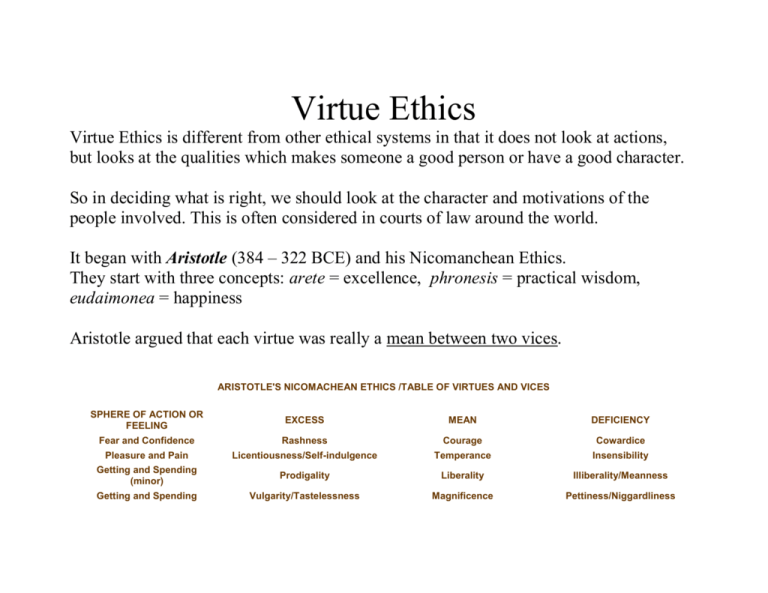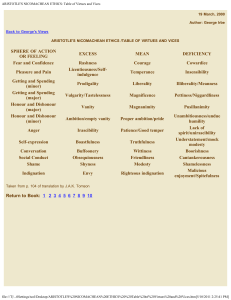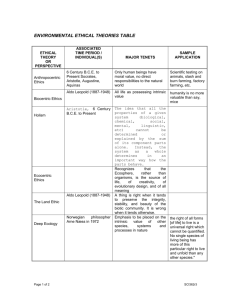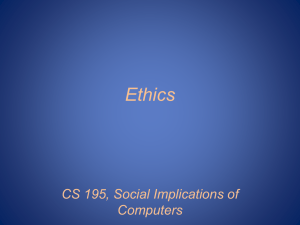Virtue Ethics
advertisement

Virtue Ethics Virtue Ethics is different from other ethical systems in that it does not look at actions, but looks at the qualities which makes someone a good person or have a good character. So in deciding what is right, we should look at the character and motivations of the people involved. This is often considered in courts of law around the world. It began with Aristotle (384 – 322 BCE) and his Nicomanchean Ethics. They start with three concepts: arete = excellence, phronesis = practical wisdom, eudaimonea = happiness Aristotle argued that each virtue was really a mean between two vices. ARISTOTLE'S NICOMACHEAN ETHICS /TABLE OF VIRTUES AND VICES SPHERE OF ACTION OR FEELING EXCESS MEAN DEFICIENCY Fear and Confidence Rashness Courage Cowardice Pleasure and Pain Licentiousness/Self-indulgence Temperance Insensibility Getting and Spending (minor) Prodigality Liberality Illiberality/Meanness Getting and Spending Vulgarity/Tastelessness Magnificence Pettiness/Niggardliness (major) Honour and Dishonour (major) Vanity Magnanimity Pusillanimity Honour and Dishonour (minor) Ambition/empty vanity Proper ambition/pride Unambitiousness/undue humility Anger Irascibility Patience/Good temper Lack of spirit/unirascibility Self-expression Boastfulness Truthfulness Understatement/mock modesty Conversation Buffoonery Wittiness Boorishness Social Conduct Obsequiousness Friendliness Cantankerousness Shame Shyness Modesty Shamelessness Indignation Envy Righteous indignation Maliciousness/Spitefulness This is a more flexible model of ethics in that the ideal character of an individual may vary from place to place but doesn’t really tell us what to do in any given situation. Although this model seems to encourage to subjective idea of cultural relativism, some view virtues as being true for all people, or ethical objectivism. Can you think of a cultural tradition which should be banned? Can you think of examples of universal ethics, that would apply to all people independent of culture?











